
Jack J. Lee is a freelance science writer based in the San Francisco Bay area. He was the Summer 2020 science writing intern at Science News. He has a bachelor’s degree in biology from Caltech and a Ph.D. in molecular biology from Princeton University. He recently completed a master’s program in science communication at the University of California, Santa Cruz. His work has been published in Eos, the Monterey Herald and The Mercury News.

Trustworthy journalism comes at a price.
Scientists and journalists share a core belief in questioning, observing and verifying to reach the truth. Science News reports on crucial research and discovery across science disciplines. We need your financial support to make it happen – every contribution makes a difference.
All Stories by Jack J. Lee
-
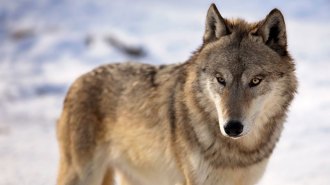 Animals
AnimalsGray wolves scare deer from roads, reducing dangerous collisions
The predators use roads as travel corridors, creating “a landscape of fear” that keeps deer away and saves millions of dollars a year, a study finds.
-
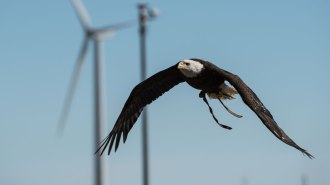 Animals
AnimalsHow researchers can keep birds safe as U.S. wind farms expand
Tracking bald eagle abundance and migrating whooping cranes provides a clearer picture of where wind turbines could be safely built.
-
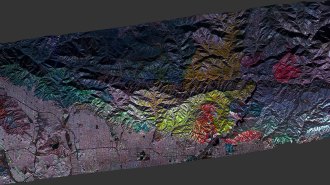 Earth
EarthColor-coded radar maps reveal a patchwork of California wildfire destruction
A composite made up of fine-scale vegetation maps from different years lets researchers track the story of plant loss and regrowth around Los Angeles.
-
 Life
LifeLife on Earth may have begun in hostile hot springs
What researchers learn at hot springs and seafloor vents may guide the search for life on icy moons and Mars.
-
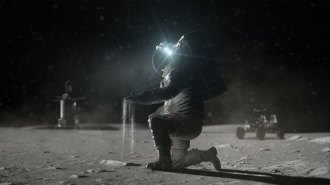 Space
SpaceHow do you clean up clingy space dust? Zap it with an electron beam
An electron beam is the newest addition to a suite of technologies for cleaning sticky and damaging lunar dust off surfaces.
-
 Health & Medicine
Health & MedicineNew coronavirus tests promise to be faster, cheaper and easier
Researchers are developing a smorgasbord of tests to detect RNA and proteins from the virus that causes COVID-19.
-
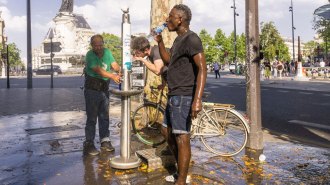 Climate
ClimateHurricanes have names. Some climate experts say heat waves should, too
A newly formed international alliance aims to raise awareness about extreme temperatures and protect vulnerable populations.
-
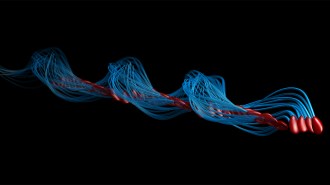 Health & Medicine
Health & MedicineHuman sperm don’t swim the way that anyone had thought
High-speed 3-D microscopy and mathematical analyses reveal that rolling and lopsided tail flicks keep the cells swimming in a straight line.
-
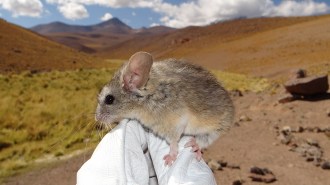 Animals
AnimalsA South American mouse is the world’s highest-dwelling mammal
At 6,739 meters above sea level, the yellow-rumped leaf-eared mouse survives low oxygen and freezing conditions atop a dormant volcano.
-
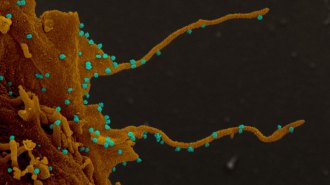 Health & Medicine
Health & MedicineCoronavirus-infected cells sprout filaments that may spread the virus
Like other coronaviruses, the virus behind COVID-19 causes infected cells to grow spindly projections that may act as highways to other cells.
-
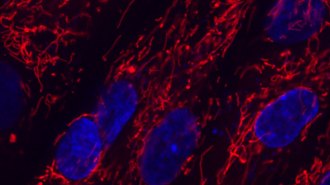 Genetics
GeneticsA bacterial toxin enables the first mitochondrial gene editor
Researchers have engineered a protein from bacteria that kills other microbes to change DNA in a previously inaccessible part of the cell.
-
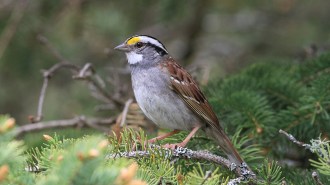 Animals
AnimalsA sparrow song remix took over North America with astonishing speed
A variation on the white-throated sparrow’s song spread 3,300 kilometers in just a few decades.